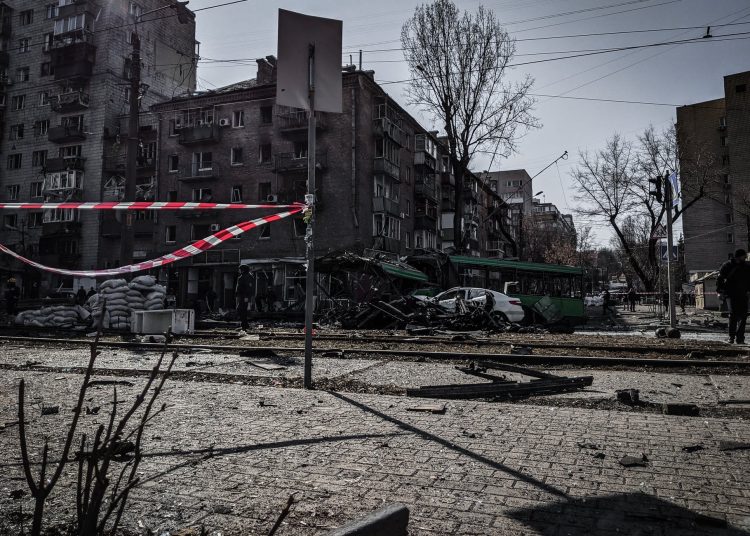Iowans, and Americans across the country, have been shocked and horrified by Putin’s unjust, unprovoked war on Ukraine. Innocent men, women, and children have been murdered; our global alliances and world order have been tested; and across the globe people’s lives have been changed forever. But, amidst the horrible bloodshed and destruction we’ve all seen as a result of Putin’s invasion, one issue that has not received as much attention is the war’s impact on food security across the world.
A major producer and exporter of grain, wheat, and corn, Ukraine is considered the breadbasket of Europe. In fact, approximately 400 million people are dependent on Ukraine and Russia for food. At least 14 African countries import half of their wheat from these two countries alone, including Egypt, the world’s largest wheat importer.
When Putin and his cronies decided to cross the Ukrainian border, attack cities and railways, and effectively shut down the Black Sea for exports, global food security was immediately threatened. Ukraine’s railways are struggling with backlog on the country’s western border as traders look for alternative export routes. During this planting season, production will drop significantly in Ukraine due to the lack of available fertilizer, pesticides, and diesel fuel—which is being used by the military to fight the war. We’ve heard from non-governmental organizations on the ground that grain is rotting in silos because there’s no way to move it. High fertilizer prices and shortages will particularly impact developing countries where farmers cannot afford it and will have reduced yields. As a result, their cash-strapped governments will be forced to import large quantities of staple crops.
Recognizing this issue, I teamed up with my fellow member of the Senate Agriculture Committee, Senator Roger Marshall of Kansas, to host members of Ukrainian Civil Society for a roundtable on Russia’s war in Ukraine and what it means for global food security and agriculture. We discussed Russia’s use of food as a “quiet weapon,” where they have gone so far as to steal Ukrainian farm equipment and an estimated four hundred thousand tons of grain. And we agreed that the best and quickest way to address this crisis is for Ukraine to win the war—and that can happen if the United States and our NATO allies properly equip them.
In the meantime, America should take immediate action to expedite delivery of food aid to our friends and partners around the world who rely on Ukraine for food. Last week, I led an effort with Democratic Senator Chris Coons of Delaware to reduce bureaucratic red tape and lower costs for shipping so we can expedite food aid to Ukraine and other countries affected by Putin’s unjust invasion. Too often food insecurity leads to unrest, which in turn can threaten the security of our own homeland. Our bipartisan resolution would temporarily waive a requirement under current law mandating that 50 percent of U.S. food aid exports are shipped on U.S. flagged vessels. This short-term, narrowly-crafted measure will allow us to flow aid faster and will save tens of millions of taxpayer dollars and countless lives around the world.
This war will have long-lasting, worldwide effects. While it’s critical we do what we can to help our Ukrainian friends win on the battlefield, we must also be clear-eyed about how this war is impacting global food security. The Biden administration could waive these cargo requirements today – but so far, they’ve chosen not to. That’s why we need to quickly pass my bipartisan effort and allow America’s hardworking farmers and producers continue to quite literally feed the world.
















